WORLD ENERGY ISSUES MONITOR 2025
WORLD ENERGY TRANSITIONS IN MOTION
Energy transitions around the globe are increasingly dynamic, emergent, and self-organising – much like the flocking of birds. Each bird reacts to its neighbours and surroundings, creating evolving formations that may look different from one moment to the next yet remain guided by the same basic rules. Energy transitions follow the same patterns, with a few unifying drivers – like climate concerns, technology advances, and social imperatives – shaping countless local variations, depending on political, economic, and cultural conditions.
The 2025 World Energy Issues Monitor serves as our lens into these patterns. It shows what factors drive energy transitions, how regions and groups respond differently, and where shared insights can help us nudge the global energy sector onto more human-centred, resilient, and inclusive pathways. Decarbonising our energy systems has yet to truly begin. And, at a time when the international landscape is growing more fragmented – with multiple poles of influence and competing agendas – understanding these regional differences is both urgent and essential to start the process of net-zero and beyond.
This edition of the World Energy Issues Monitor draws insights from over 3,000 respondents across 100+ countries.
We invite you to harness the power of this tool not just for reading and reflecting, but also as a catalyst for action and collaboration in our pursuit of making faster, fairer and more far-reaching energy transitions happen.
Downloads

World Energy Issues Monitor 2025
Download PDFKey findings from this edition include:
1. Critical Uncertainty: Commodity Prices remain in pole position – Fossil fuel dependence and market volatility, influenced by geopolitical tensions, shifting policies, and supply chain constraints.
2. Top Action Priority: Transmission Grids for a second year running – Grid expansion and modernisation are essential to enabling clean energy growth, yet challenges in permitting, investment, and collaboration slow progress.
3. Blind Spots: Social License & Circular Economy – Community engagement and resource circularity are often overlooked yet critical for long-term success. Public buy-in hinges on co-benefits – connecting wellbeing, sustainable development and energy transition agendas is crucial for progressing orderly, just and far-reaching energy transitions.
4. Bright Spots: Regional Leadership – Countries like Brazil, China, Saudi Arabia, New Zealand, and Spain demonstrate that targeted policies, investments, and social inclusion can and do drive meaningful energy progress.
REGIONAL COMMENTARIES
Note on Timing and Context The World Energy Issues Monitor survey was conducted between 24 November 2024 and 10 January 2025. The regional workshops that informed the commentary insights took place in the second half of February 2025, before the current trade tensions and the US-led trade tariffs. As such, the regional commentaries should be read in the context in which they were developed, prior to the escalation of current global trade dynamics.
WORLD ENERGY ISSUES MONITOR 2025 MAPS
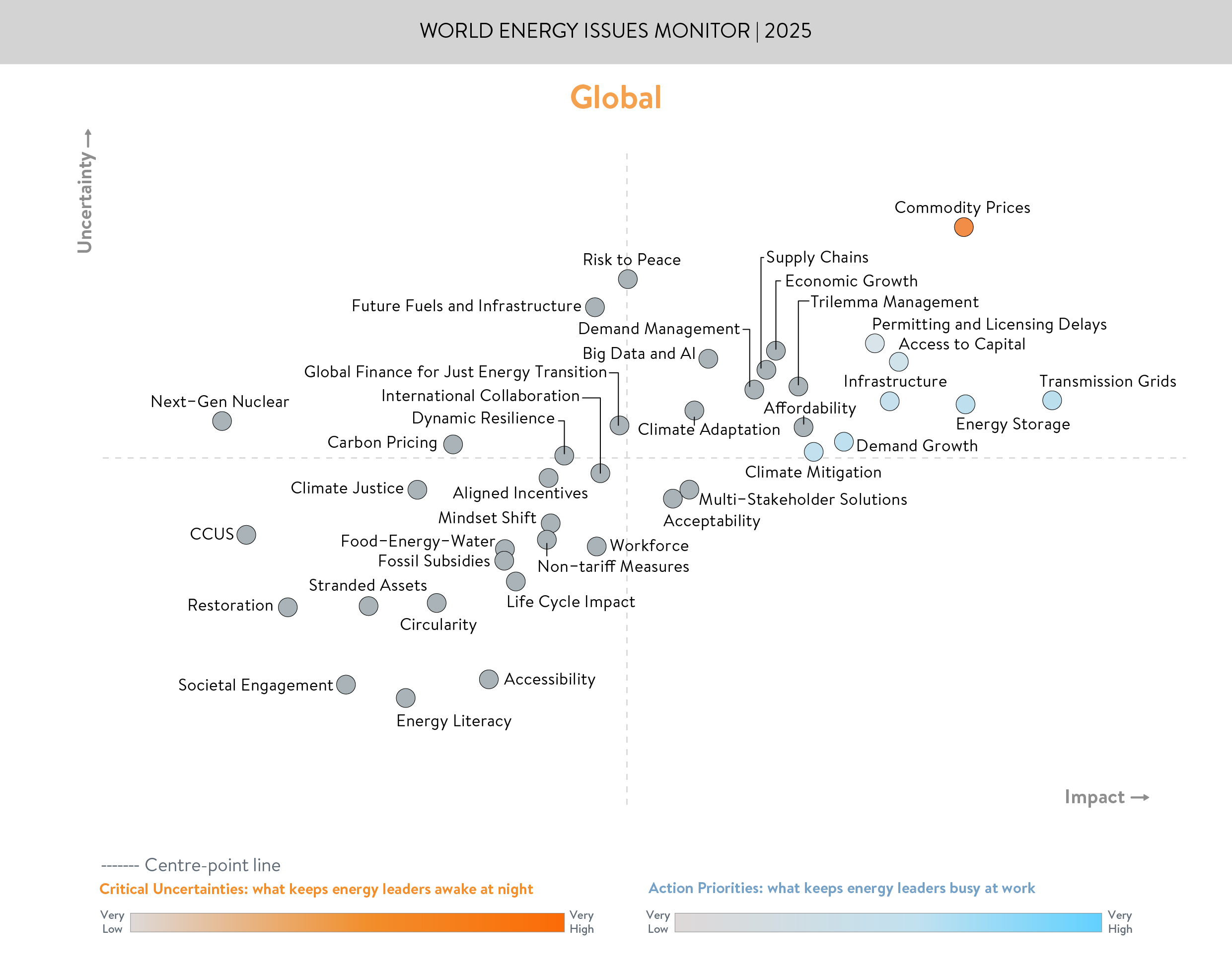
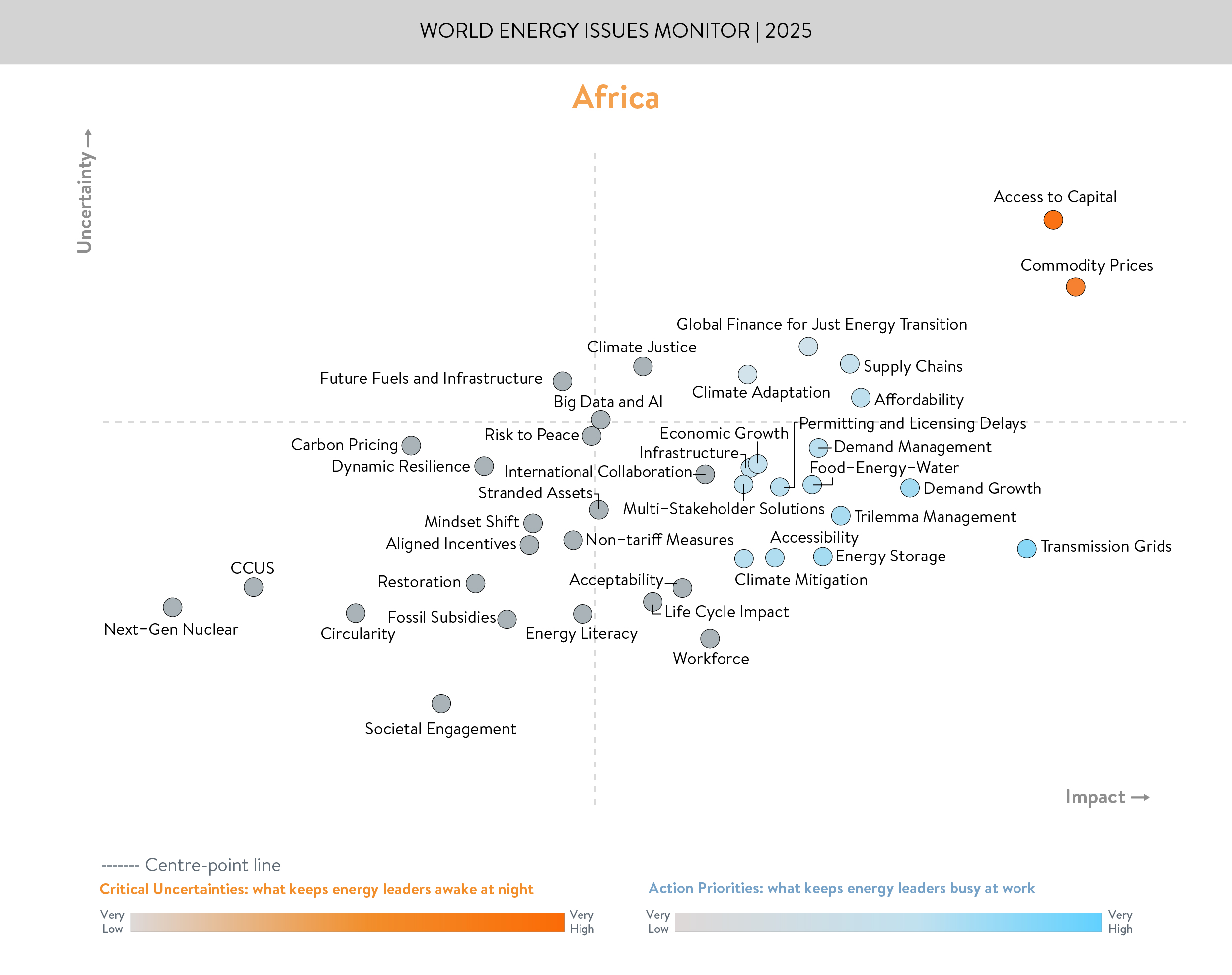
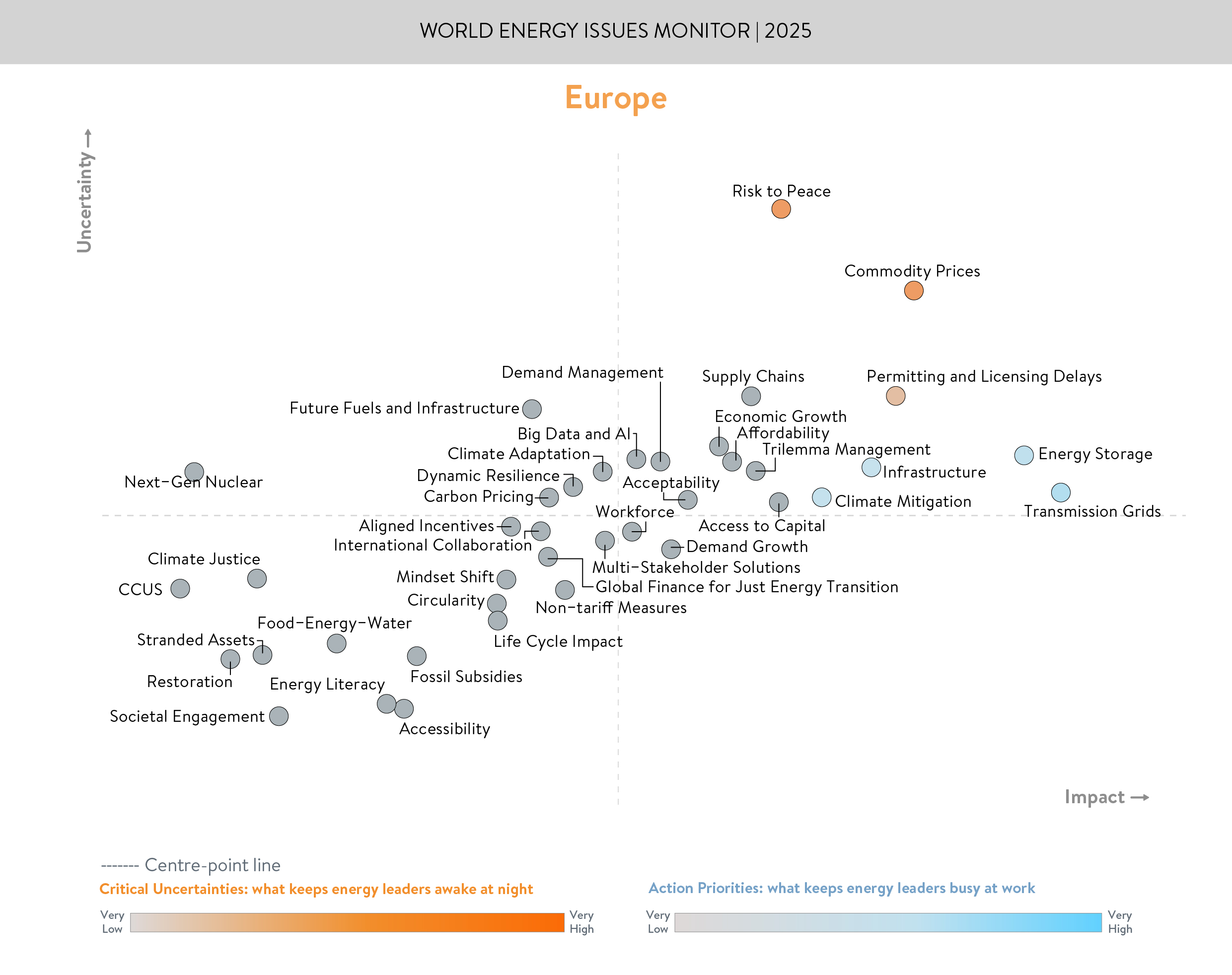
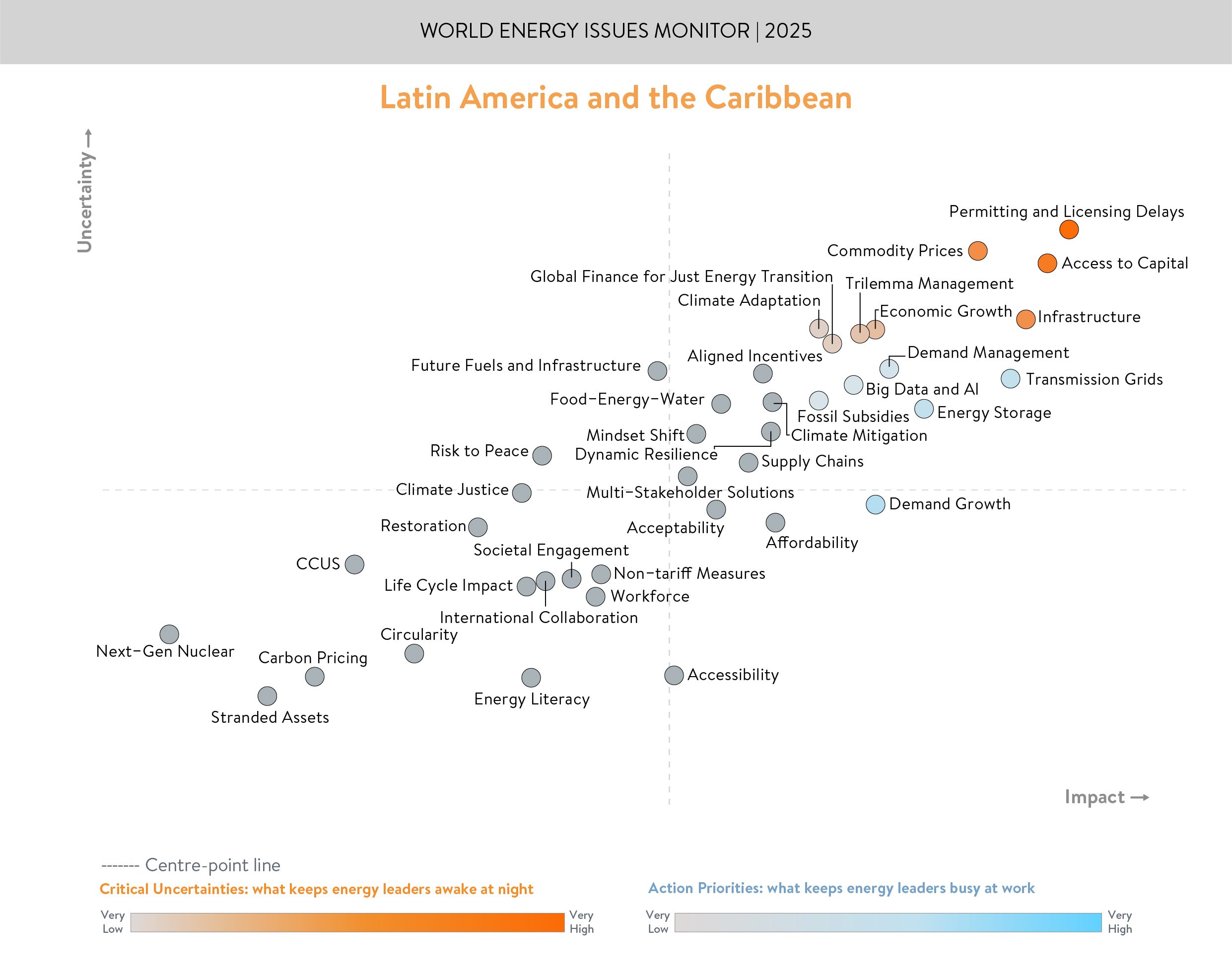
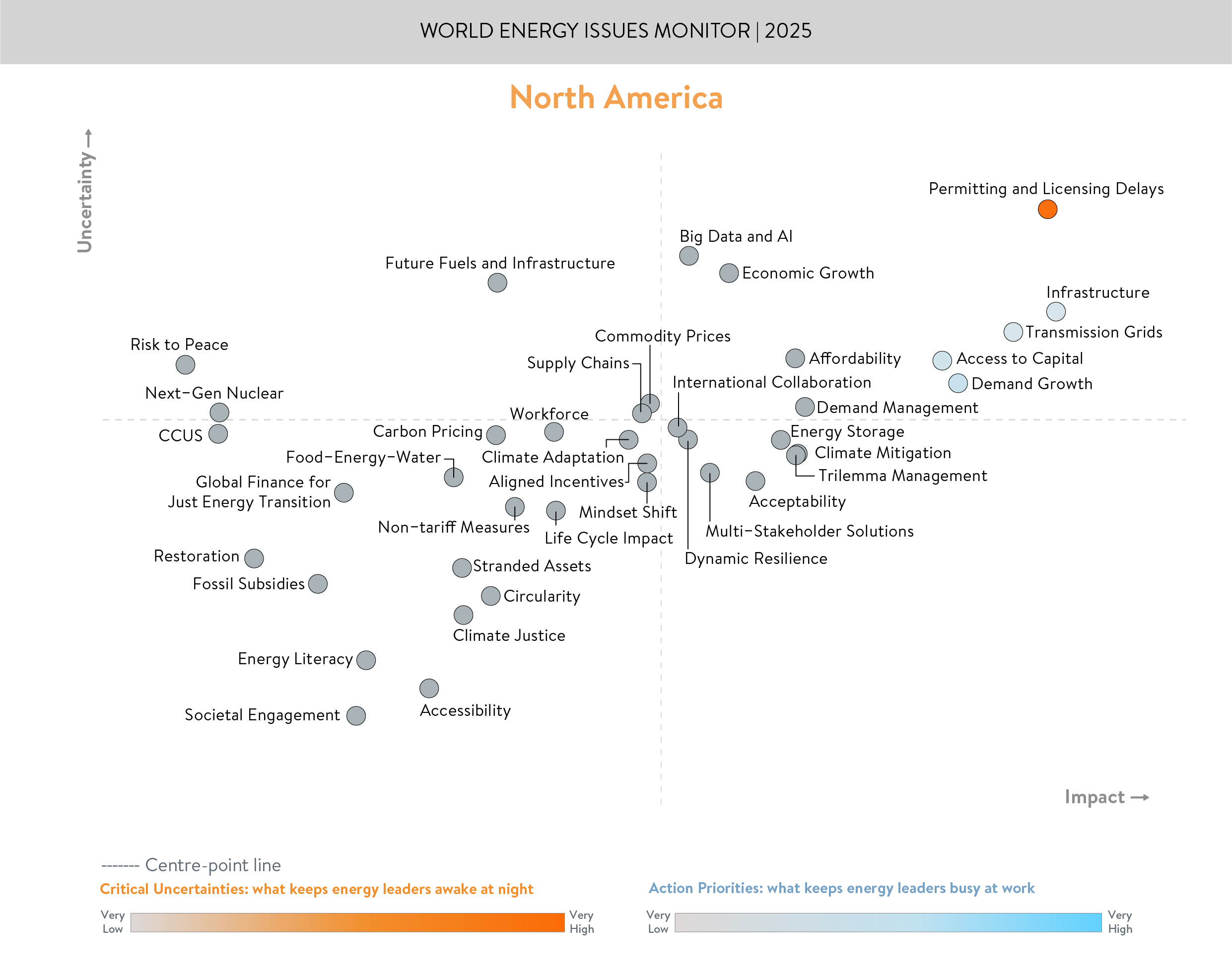





_-80_result_688_387_s_c1_c_c.jpg)


